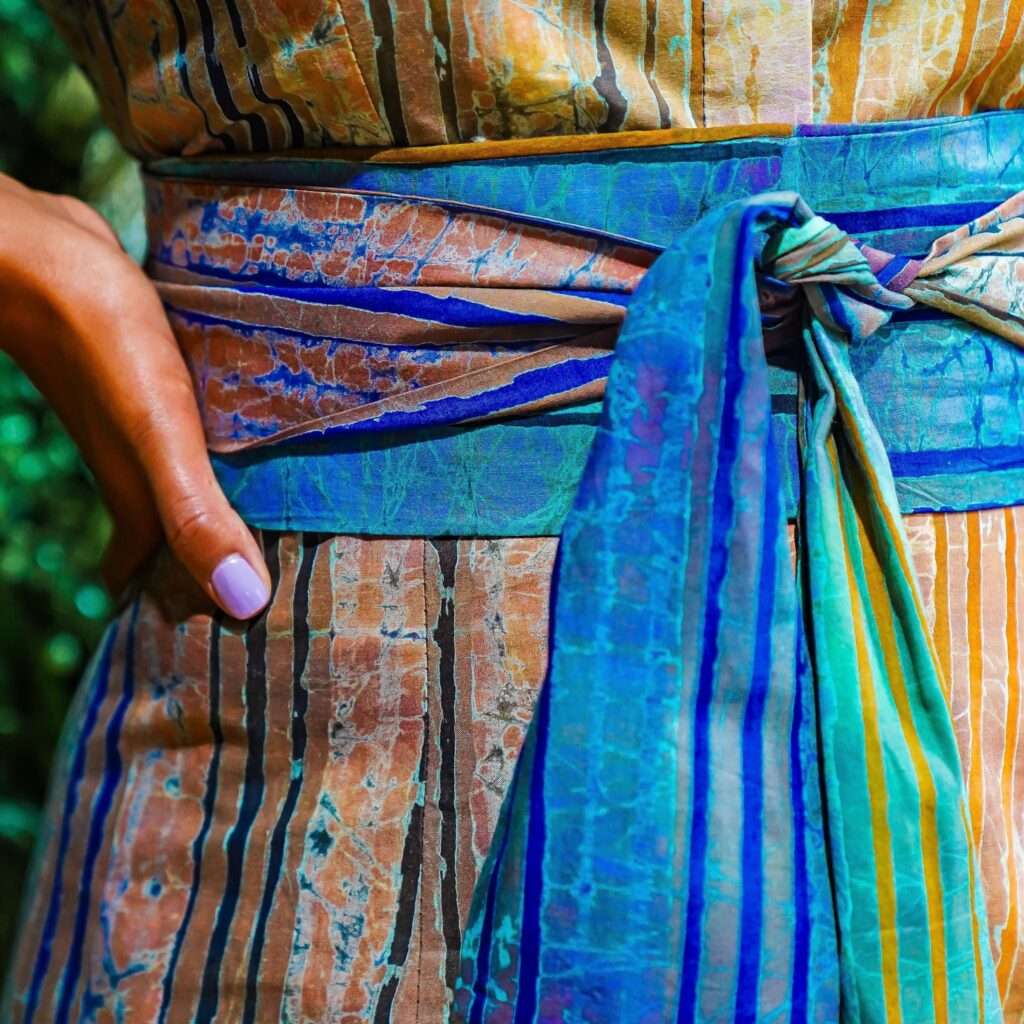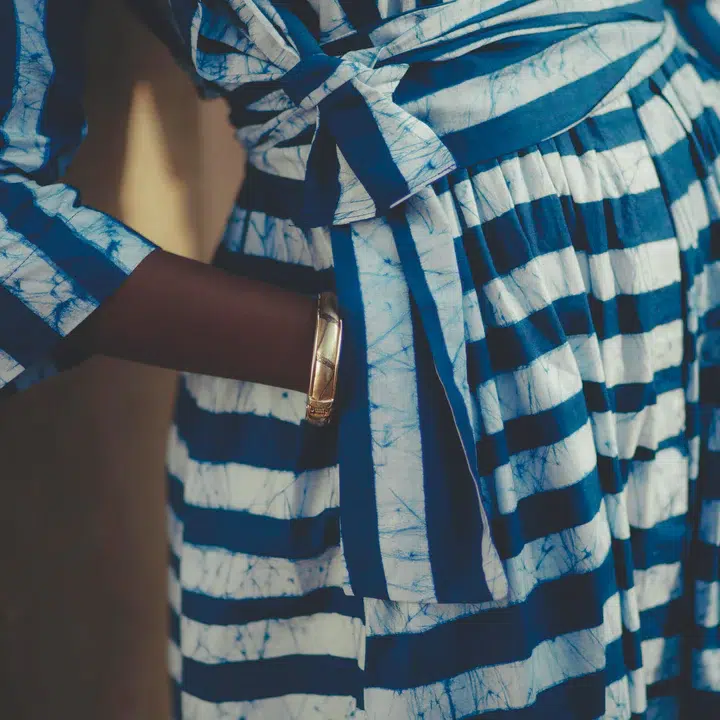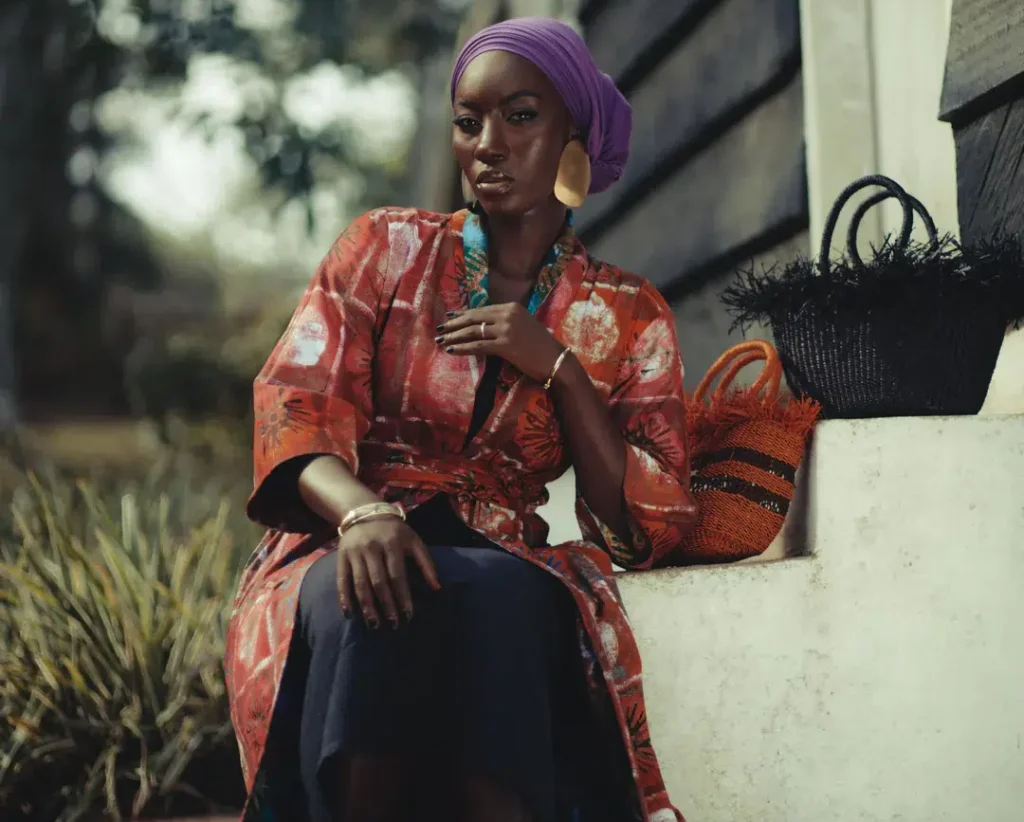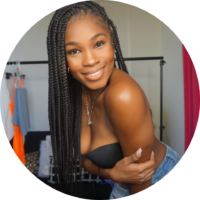LOVE DOT: A Fashion Brand Celebrating Roots with Bold Style
LOVE DOT is more than just a clothing line – it’s a vibrant tapestry celebrating the power and heritage of the African diaspora. Founded by Nneka Ude, a designer and storyteller, LOVE DOT uses its clothing and accessories to weave a narrative that honors these roots.
With roots spanning Nigeria and the American South, Ude infuses her designs with a deep respect for tradition. This creates bold, sophisticated pieces that connect her diverse identities.
Join us as we explore how LOVE DOT intertwines culture, fashion, and social impact.
Nneka Ude, Founder of LOVE DOT
” data-image-caption=”” data-medium-file=”https://shoppeblack.us/wp-content/uploads/2024/06/1_Nneka_Ude_CEO_LOVE_DOT_Inc._540x-300×300.webp” data-large-file=”https://shoppeblack.us/wp-content/uploads/2024/06/1_Nneka_Ude_CEO_LOVE_DOT_Inc._540x.webp” class=”wp-image-33204 size-full” src=”https://shoppeblack.us/wp-content/uploads/2024/06/1_Nneka_Ude_CEO_LOVE_DOT_Inc._540x.webp” alt=”LOVE DOT” width=”540″ height=”540″ />
What inspired you to create LOVE DOT?
I started LOVE DOT to pay homage to my roots. The name itself gives honor to my late mother, Dorothy Dudley, who was affectionately referred to as “Dot”.
She is the inspiration fueling my desire to build a brand that centers on and celebrates the power of the African diaspora. LOVE DOT is truly a representation of me, my background, and my family history. My roots span Nigeria and the American South. I’ve always been passionate about finding ways to connect the dots of my various identities across the diaspora.
Fashion and design became an obvious path to do so. I’m not a trained designer but I’ve always had an eye for beautiful textiles and unique designs that make a statement without any real effort. As someone who is constantly on the move, I realized the importance of creating pieces that are bold, and easy to wear, but also timeless.
Our prints tell a story. They are bold, unexpected, and ambitious. My goal is to create clothing and jewelry that inspire people to move with a higher level of sophistication and confidence anywhere they are – from social gatherings to corporate functions.
How did you initially fund the launch of your business?
I’m a hybrid entrepreneur. So by day, I am a senior strategy leader for one of the largest shopper marketing and creative commerce agencies in the United States. By night, and every other off-hour in my day, I am the CEO and Creative Director of LOVE DOT. To get the company off the ground I relied on my corporate salary and eventually business credit.

How do you balance social impact with building a profitable business?
I believe economic development and collaboration across the diaspora is the most relevant form of social impact when it comes to building Africa.
I aim to work directly with established small businesses across West and Southern Africa that have long been pillars of economic support and development for their local communities. I want the growth of LOVE DOT to be reciprocal—a reinvestment into other Black and African-owned businesses across the diaspora. Our partners employ trained and skilled laborers above market wages, often providing them with food and accommodations.
Our items tend to be priced comparable to other accessible luxury brands allowing us to maintain a healthy focus on people AND profit. Too many people see Africa as the land of the exploited. A place where everyone’s skilled labor is there to be leveraged by others at the lowest possible costs; setting the bar low for what people are willing to spend on a quality end product.

From an environmental perspective, we are equally focused on matching our production to demand. Our Batik fabrics are made in-house using textiles (cotton) sourced from Togo and Benin. Each collection is batch produced in limited stock, with excess fabrics used to make other items like wallets, scarves, and headwraps.
We limited production to limit waste and better control our margins. But we also limit production to break a vicious cycle. An article by Bárbara Poerner for the Fashion Revolution, titled “Where do clothes end up? Modern colonialism disguised as donation,” highlights how 70% of donated clothes end up back in Africa as waste or for second-hand resale. By limiting waste and maintaining high standards, we avoid contributing to this problem.

Can you elaborate on the selection process that led to your partnerships in Ghana and South Africa?
We found our manufacturing partners by networking at global retail trade shows and expos. Often, the economic development commissions of a country will bring a constituency of vetted and established small businesses to exhibit at these events.
It’s a way for governments to promote small business development within a specific industry. I’ve leveraged these events to find potential partners that align to our mission and meet our specific partner requirements.

How do you ensure that traditional techniques are preserved while collaborating on contemporary designs?
The tradition is in the fabric. Our Batik fabrics are handmade using traditional techniques. Batik is a beautiful, wax-over-cotton, stamping process that takes a tremendous amount of skill and knowledge to deliver.
It’s a process that has been done for centuries across West Africa and Southeast Asia and has been perfected for decades by our team and partners. We aren’t cutting corners or deviating from the process, which takes time and nature to perfect.
We are then taking each bundle of fabric and transforming it into clothing that the modern woman or man, who’s chasing their dreams, can wear with the utmost confidence and pride.

If you could wake up tomorrow as an expert in any business skill, what would it be?
Of all the questions, this has to be the toughest to answer!
I hail from a corporate background so I used to order, process, and structure – both of which are often lacking when doing business abroad.
Over the past three years I think the three business skills I could give a TedTalk on would be the ability to adapt, problem solve, and the power of emotional intelligence.
Starting a business is not easy. However, doing business anywhere on the continent is not for the faint of heart. Things are different. How business is conducted is different. You have to learn to adapt fast.
You have to learn how to quickly discern what may be going on around you, in cultures that may be foreign to you. You have to learn how to figure things out to make things work – which sometimes takes focused planning and other times requires strong, in-country personal relationships.

Where do you see your company in the next 5 years?
Five years from now LOVE DOT will be a brand that is not just sold through our own online retail channels, but will also be available at major retailers such as Wolf & Badger, Nordstroms, and Anthropologie.
Our production will not only span South Africa and Ghana, but will once again be rooted in Nigeria and incorporate other traditionally woven fabrics – like Akwete.
The initial designs that started LOVE DOT were produced in Nigeria, but in recent years we pulled back production due to the rising costs of doing business.
See the full collection at www.LOVEDOT.co
Press, Business, and Wholesale Inquiries:
Nneka Ude – [email protected]
Customer Service – [email protected]
The post LOVE DOT: A Fashion Brand Celebrating Roots with Bold Style appeared first on SHOPPE BLACK.


